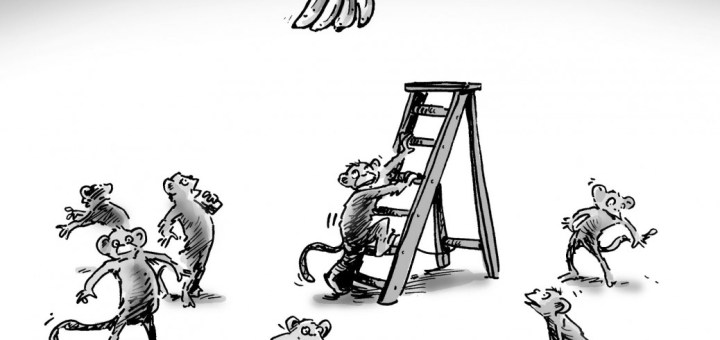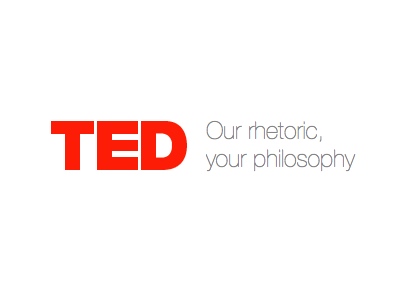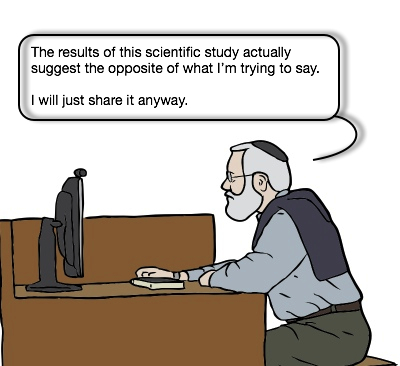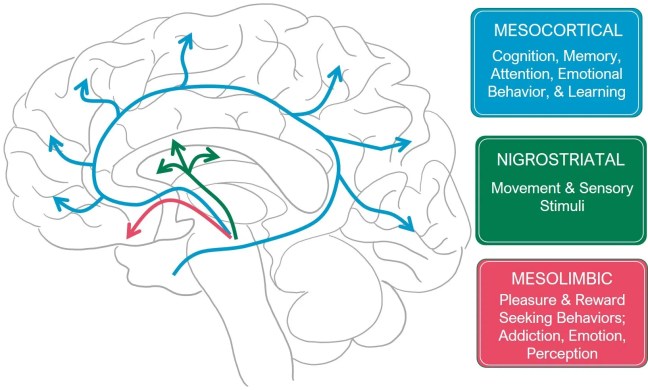Something I read on quora
Why do some intelligent people fail to achieve their potential?
Mark L. Levinson, Freelance translator (mostly Hebrew to English) (1977-present)
Answered Jun 21 · Upvoted by
Karen Albeck, M.A. (PhD abd) Physiological Psychology and Psycholinguistics & Philosophy, Lehigh University
Originally Answered:
What usually stops a highly intelligent person from achieving his/her full potential?
I talked to a woman who ran a school for gifted children, and she said one big problem is that the highly intelligent kids (unless they’re in a school like hers) don’t get much gratification out of talking and playing with the kids around them, so they get their gratification from the approval of older people— parents and teachers. Then when they go out into the world themselves as adults, they don’t find it easy to connect to their contemporaries and win their support; they haven’t developed the appropriate social skills.
___________________
A genius, an average man and an uneducated man walk into a bar.
They talk about life, they talk about death. They discuss making money, they talk about family.
The average man has big ideas. He wants to change the world. The uneducated man wants to be happy. He wants to start a family and live a simple life.
But the genius, he can achieve. He can create, he can lead, he can contribute to society. He thinks on a greater level than us, and has a mind racing all the time.
But, does he want to?
Intelligent people and geniuses have no obligation to serve the society they were born in. Just as any person has the potential to become anything, a genius may find it way easier to achieve that potential. But what do they want?
Who are we to tell them what their potential is in life? How do we judge their successes and failures as a loss of potential?
If they are smart, intelligent, and driven to change the world, that is fine. Some geniuses don't want to do that however. They may just want simple lives. They may want a steady track, a simple goal.
Expectations play a huge role in intelligent people's lives. They are expected to make the most of their ability to achieve, innovate, create, etc. As if it was their purpose in life.
When we put such responsibility on someone with a greater ability than ours, it's like a case of noblesse oblige: we can, therefore we must.
Maybe, some of them do not want.
Why do some intelligent people fail to reach their potential?
Because they have a life to live, and no obligation to live for anyone else.
___________________________________________________________________________________-
There several kinds of intelligent people.
Type1
If they do not find proper and enough
social feedback and change when wrong, they will become idealistic, sensitive, irresolute and disconnected rather than insightful, sympathetic, reasonable and pragmatic.
And they need pay extra efforts on interpreting situations and relationships
They can misguide themselves and others when organizing more efficient operations. Under stress they tend to spend unnecessary time establishing order.
Type2
If they do not know how to
fix failing behavior and let morals inform action, they will become idealistic, stringent, peevish and disconnected rather than insightful, competent, caring and pragmatic.
And they need pay extra efforts on interpreting situations and relationships
They usually disregard others' opinions, valuing their independence. under stress they may be deceived into over-addressing others' concerns and disappointed by a false sense of closeness.
Type 3
If they fail to
find deeper truth and have objective action, they will become tenacious, unnuanced, reactive, unreflective rather than factual, introspective, adaptable and tactful.
And they need pay extra efforts on analyzing; categorizing; evaluating according to principles and whether something fits the framework or model.
They can cling to what they are used to. Under stress they tend to fret about insecurity and be deceived by false promise of predictability.
Type 4
If they fail to
find new ideas and have right implementation, they will become critical, speculative, nitpicky and indifferent rather than systematic precise, imaginative, detailed and helpful.
And they need pay extra efforts on segmenting and organizing for efficiency; systematizing; applying logic; structuring
They can fool themselves and others by a misguided focus on the perceived "realities" of a situation. Under stress they tend to be deceived into taking impulsive action.
Type 5
If they fail to
find deeper truth and have objective action, they will become accommodating, unnuanced, reactive, naive rather than generous, introspective, adaptable and judicious.
And they need pay extra efforts on valuing; considering importance and worth; reviewing for incongruity
They can cling to what they are used to. Under stress they tend to fret about insecurity and be deceived by false promise of predictability.
Type 6
If they fail to
explore and learn and have better life direction, they will become critical, evasive, simplistic and indifferent rather than systematic precise, easygoing, inquisitive and helpful.
And they need pay extra efforts on valuing; considering importance and worth; reviewing for incongruity
They usually ignore subtleties and nuances not tied to real data. Under stress they tend to be deceived into interpreting situations in a very idiosyncratic way, attributing ill intent where there is none.
And there more
intelligent kinds of people.
Culture, race, sexual orientation and social economic classes will all influence these different processes of mentally growing.
How to solve? Classify people from their potential abilities.
(this system is complicated, involve (4x4)x(9x2)=288 kinds of different people)
The above I just introduce you with the 6 in 4x4 in the simplest descriptions.
And for
They are not lazy or not. They just do not know how to effectively run for organization. But only type 4 have the possibility to be systematic precise and imaginative at the same time.
And
factual but repressed type 3 can be deceived by false promise of predictability under stress. So they just keep blocking type 4. I don’t care whether type 3s are stressed or not.
_________________
A few decades ago, most people believed that there was a simple formula to success; the higher your IQ, the more successful you were. This turned out to be wrong. Further studies discovered numerous factors that predicted success, including willpower and
emotional intelligence (EQ). These other factors are still under-emphasized to this day.
Here are 10 reasons why intelligent people underperform:
1. They Over-Analyze
Intelligence actually works as a stumbling block for social interactions. The smarter you are, the more capable you are to over-prepare and over-analyze. Dumb people actually have an advantage because they aren’t even aware of the consequences.
They just go in and talk to people. This lets them stay relaxed and confident, which improve their results. So how do you solve this? Take one piece of social skills advice at a time. Focus on just improving executing on it because it avoids information overwhelm.
“We are dying from overthinking. We are slowly killing ourselves by thinking about everything. Think. Think. Think. You can never trust the human mind anyway. It’s a death trap.” –
Anthony Hopkins
2. They Rely Too Much On Intelligence
Many smart people end up using their intelligence as a crutch. They reason, “
I will just get smarter rather than work on my weaknesses.” While it’s sometimes better to double down on your strengths, avoiding glaring weaknesses can keep you from improving.
For example, you can end up never improving your social skills. This leads to severely off-putting lack of social intelligence that destroys earning opportunities. This is a mistake because no matter what job you have, you will be interacting with people.
3. They Have An Ego
Have you ever heard someone say a certain sport is the best just because they play it? Similarly, you can defend intelligence as the only key to success simply because it’s all you have. Yet many people are smart and not rich. How come?
Ego overpowers reality. Realize that other factors, like willpower, fitness, and EQ are worth improving. Find someone who is just like you. What advice you would give him? I did this with a man who clearly needed to go to the gym. It turns out I need to do the same.
4. They Put Theory Over Practice
Book smarts are great, but the real word is different. In the book
Willpower Instinct, the author, a Stanford professor, discovered that her scientific theories didn’t always work in practice with students. Over time, she discovered factors that the scientific process hadn’t accounted for, which allowed her to shape her teachings better.
5. They’re Scared of Change
The world’s top CEOs have expressed the importance of embracing change. This includes Sam Walton, founder of Walmart, Jack Welch, CEO of GE, and Charles Koch, founder of Koch Industries.
Change is important because if you don’t keep innovating, your competitors will catch up with you. You always have to stay vigilant. Most of us grew up in a risk-averse culture. Rather than taking calculated risks that are worth it, they avoid all risks.
6. They Avoid Mistakes
The psychologist and world-famous TED speaker, Carol Dweck, wrote a book recommended by Bill Gates called
Mindset: the Psychology of Success.
In the book, she discovered that unsuccessful people had something called a
fixed mindset. These people believed that they could never improve and didn’t see mistakes as learning lessons.
Do the opposite and you’ll start winning.
7. They Have an Entitlement Attitude
A top pattern I’ve seen among high achievers is that they never complain and never act like they deserve anything. They work for it. Among average people, the opposite is true. They feel entitled to all sorts of things from food to shelter to tuition.
Try to not complain about anything for 7 days. Ask yourself “How
can I get this?” instead of just thinking, “I can’t get this.”
8. They’re Tempted By Too Many Goals
In the modern world, there are plenty of shiny objects to chase after. You can fear missing out on something if you have to focus on something else. But this is wrong.
Here’s a story to illustrate. Once upon a time, there was a donkey. He couldn’t decide whether to eat some hay or drink some water. He was stuck in the middle between them, paralyzed with what to do. He ended up starving to death.
If he had just focused on going to one first, he would have found that he had plenty of time later to go to the other one. You must do the same in life. Focus on one thing for a few years. You have decades to spend.
“To succeed in your mission, you must have single-minded devotion to your goal.” –
A.P.J Abdul Kalam
9. They Lack Emotional Intelligence (EQ)
One of the key discoveries of the recent century was EQ. It doesn’t have to do with numbers and math. It’s about how well you can recognize the emotions of others (and yourself) to better navigate situations.
What’s great about EQ is that it is learnable, unlike IQ. Even to this day, EQ is swept under the rug. Most people don’t bother to improve it and fail to achieve their potential in the areas EQ impacts, like wealth and relationships.
10. They Lack Social Intelligence
Similar to EQ, social intelligence is about effectively navigating social interactions and conversation. IQ is still over-emphasized in the modern world and social intelligence is just acknowledged as something that is there, which can’t be improved.
But the opposite is true.
Social intelligence is critical to most of our lives. We are navigating with people all the time. This doesn’t mean that you have to become an extrovert. There are socially skilled introverts as well as shy extroverts.
You can improve it. Put yourself in more social situations in your career or free time. Join an improv class or get a job with more social interactions, like a salesman or waiter. Reflect on how you could have done better everyday and you will improve over time.















